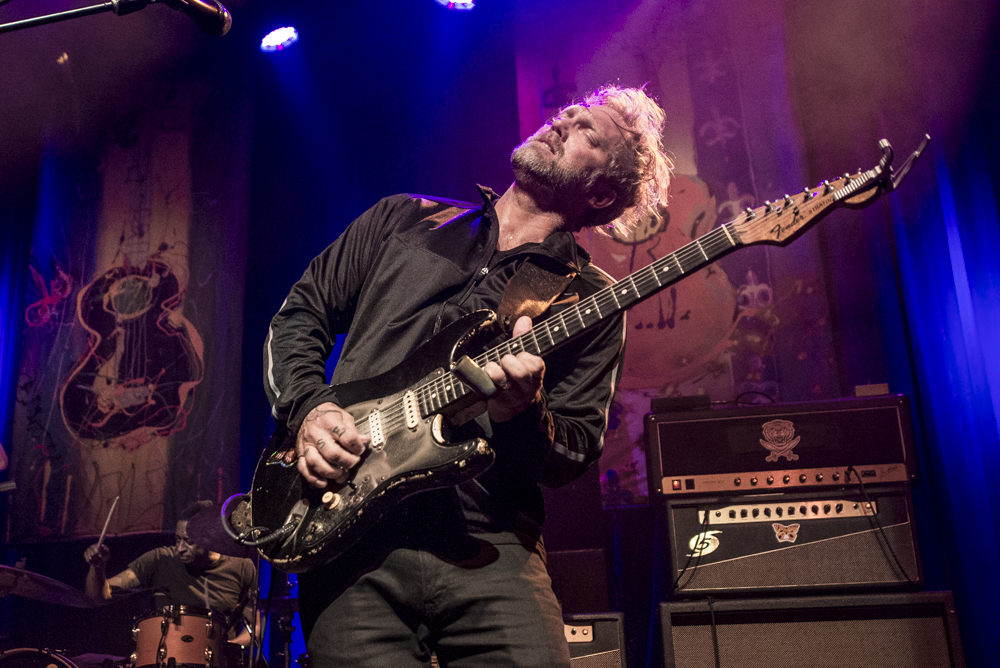
Photo by Stuart Levine
Anders Osborne’s return to the Troubadour was, in a way, like looking at a picture of the Grand Canyon through a View-Master. It had all the elements of an experience much larger, yet condensed into a more personal space. With the famed West Hollywood club’s odd angles, low stage, and matchbox dimensions, ideal for the intimacy of a lonesome balladeer, it became in the clutches of Osborne and his four-piece band a wild and beautiful wonder.
Led loudly by the twin-guitar attack of Osborne, the Swedish expat out of New Orleans, and Eric McFadden, his counterpuncher for this North American tour, the night opened with “Back on Dumain,” into the grinding “Big Talk,” and McFadden’s first sparks of feedback. “Peace” was next in line, pushing a groove reminiscent of Neil Young’s Crazy Horse, then to “Lafayette,” the single from his latest, Spacedust and Ocean Views. It was about at this point that the sold-out crowd began bopping a beach ball, without irony, in a genuine effort of arena rock affect.
Osborne’s new album is a quieter affair, and entries like “Life Don’t Last That Long” still maintained their nuances. Perhaps sensing the ears could use a breather, he switched mid-set to an acoustic pairing of “Down in Harlem” and “Louisiana Gold,” going toe-to-toe with McFadden, on mandolin, only to be rejoined by the band for the throttling “Boxes, Bills, and Pain.” Lyrical references to New Orleans and California were most prevalent, eliciting whistles and claps at either mention, but it was the musical blend of the those regions that was exemplified best on the two-hour show’s highlight, “Wind.” A lengthy jam like no other on the evening, Osborne and McFadden chased each other in a cosmic dance of guitars that built to a satisfyingly cathartic resolution, followed with a shift in focus to a couple of guest horn players from support act Sister Sparrow and the Dirty Birds.
With brass backing, Osborne tackled the plaintive “Dyin’ Days,” from 2015’s North Mississippi Osborne collaboration, then a true homage to Young as the unit segued into a thunderous chorus of “Down By The River.” A closing “Back To Mississippi” was the last for the full band, before an encore of “The Lucky One” and a birthday-wish granted on a surprise “Coming Down,” handled on acoustic by the Osborne/McFadden duo. The complete ensemble returned to the stage but only for a collective bow and a wave good-night.
The amplified power of Anders Osborne and his group coupled with his acute songwriting ability isn’t the easiest of partnerships to attempt. So much of what makes Osborne appealing is his attention to detail. These details could be overwhelmed by a wash of volume in the hands of an artist less conscientious. Instead, Osborne finds a striking balance of muscle and grace that allows for the smaller moments of quiet to be just as resounding as the sonic booms.


No Comments comments associated with this post